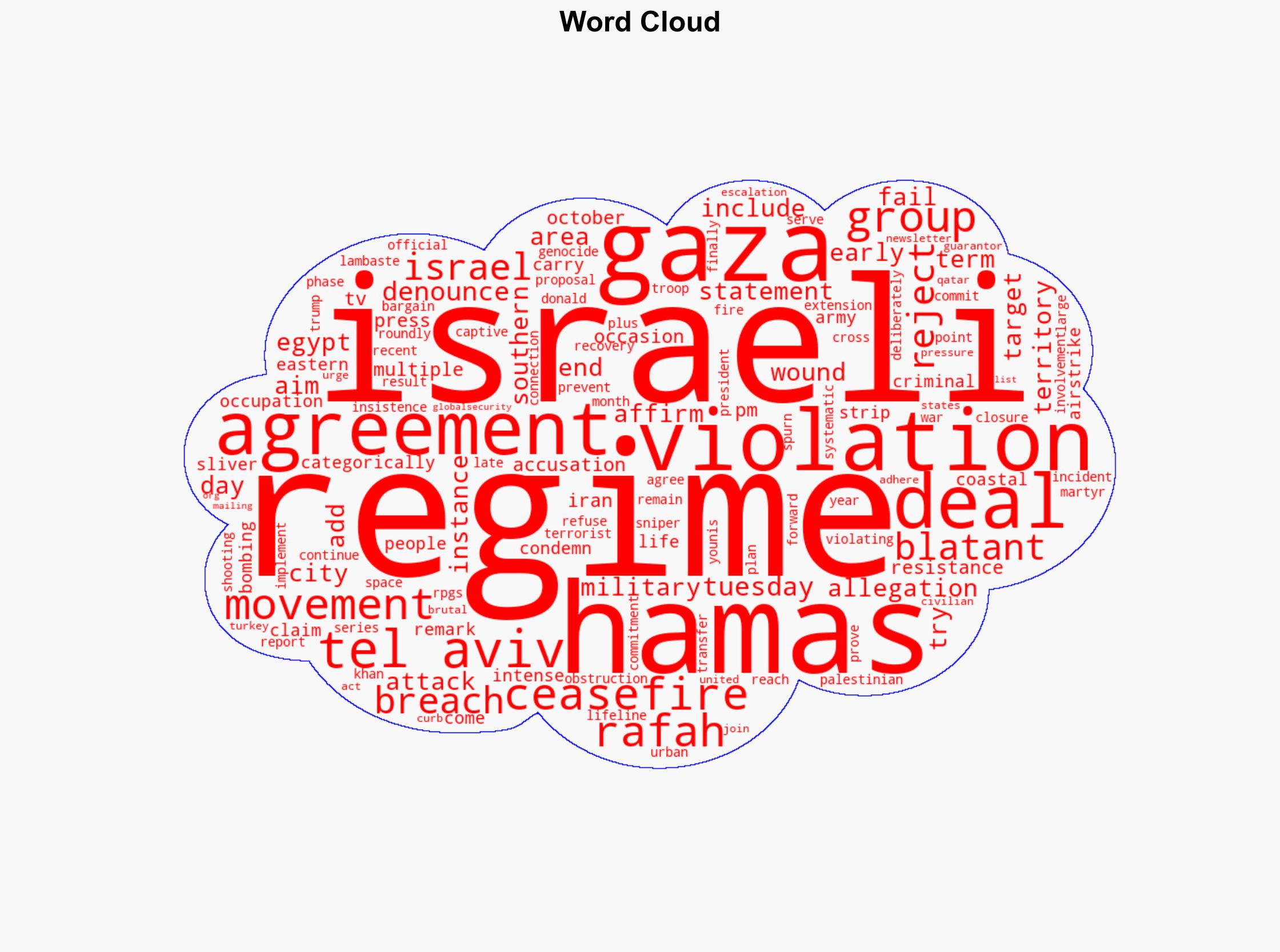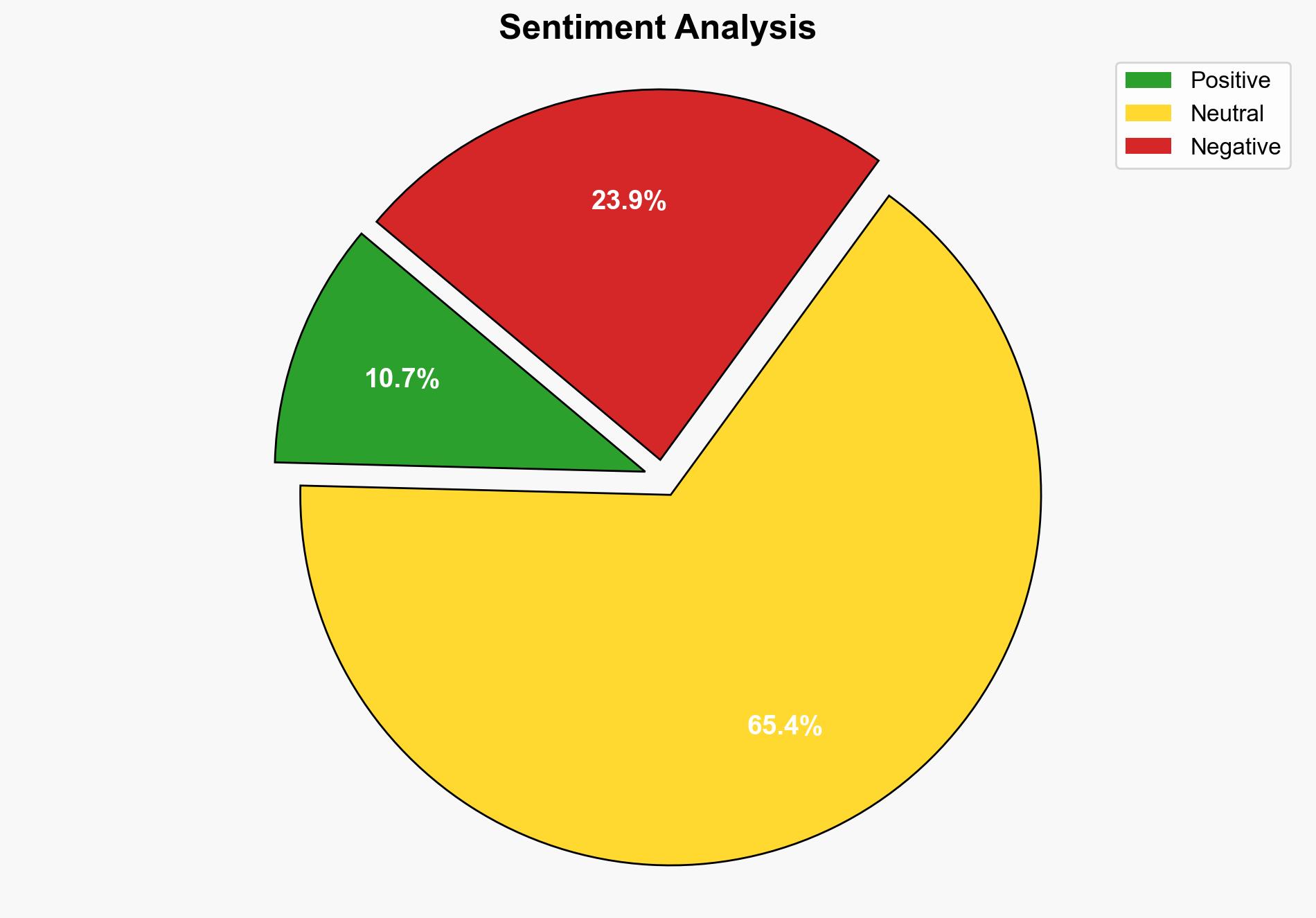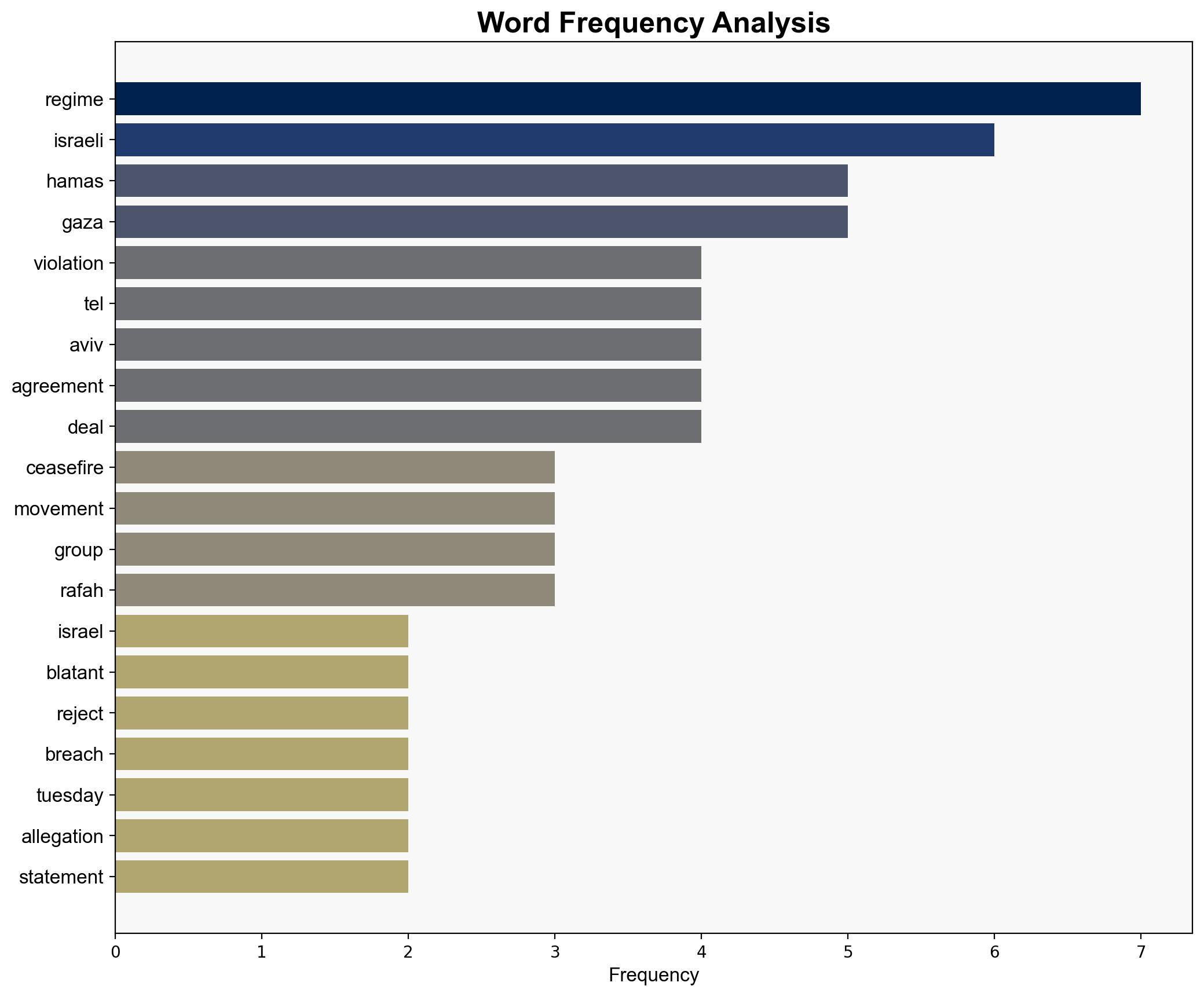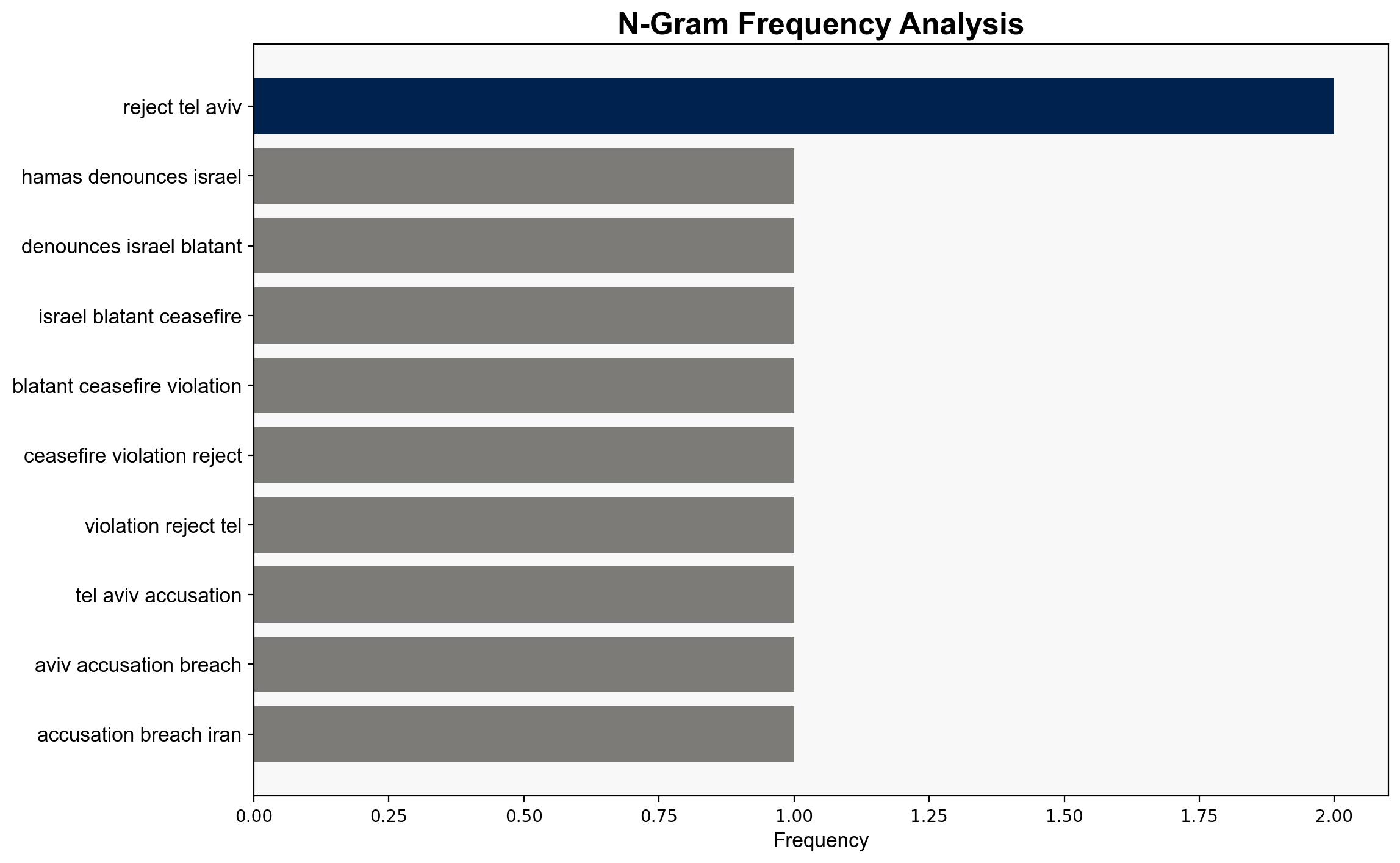Hamas denounces Israel’s ‘blatant’ ceasefire violation rejects Tel Aviv’s accusations of breach – Globalsecurity.org
Published on: 2025-10-29
Intelligence Report: Hamas denounces Israel’s ‘blatant’ ceasefire violation rejects Tel Aviv’s accusations of breach – Globalsecurity.org
1. BLUF (Bottom Line Up Front)
The most supported hypothesis is that both Hamas and Israel are engaged in a strategic blame game to justify their actions and maintain domestic and international support. Confidence level: Moderate. Recommended action: Engage in diplomatic efforts to reinforce the ceasefire terms and involve neutral third-party monitors to ensure compliance and transparency.
2. Competing Hypotheses
1. **Hypothesis A**: Hamas is genuinely committed to the ceasefire, and Israel is violating the agreement to provoke a response and justify further military action.
– **Supporting Evidence**: Hamas’s consistent public denouncement of Israeli actions and calls for international pressure.
– **Contradictory Evidence**: Israeli claims of Hamas’s involvement in attacks against Israeli forces.
2. **Hypothesis B**: Both parties are violating the ceasefire to gain tactical advantages and leverage in future negotiations.
– **Supporting Evidence**: Historical patterns of ceasefire violations by both parties and mutual accusations.
– **Contradictory Evidence**: Lack of concrete evidence from either side to substantiate claims of the other’s violations.
3. Key Assumptions and Red Flags
– **Assumptions**: Both parties are rational actors seeking to maximize their strategic positions. International mediators are neutral and effective.
– **Red Flags**: Potential bias in media reporting, lack of independent verification of claims, and historical precedent of misinformation.
– **Blind Spots**: Limited access to real-time intelligence from the ground and potential undisclosed agreements between parties.
4. Implications and Strategic Risks
– **Escalation Risks**: Continued violations could lead to a broader conflict, drawing in regional actors and destabilizing the area.
– **Geopolitical Impact**: Strained relations between Israel and neighboring countries, potential shifts in alliances.
– **Psychological Impact**: Increased civilian casualties and humanitarian crises could fuel further radicalization and recruitment by extremist groups.
5. Recommendations and Outlook
- Deploy neutral international observers to monitor ceasefire compliance and report violations impartially.
- Facilitate dialogue between parties with the involvement of trusted mediators like Egypt and Qatar.
- Scenario Projections:
- Best: Ceasefire holds with international oversight, leading to long-term peace negotiations.
- Worst: Full-scale conflict resumes, resulting in significant regional instability.
- Most Likely: Sporadic violations continue with intermittent diplomatic interventions.
6. Key Individuals and Entities
– **Hamas**: The resistance movement involved in the ceasefire agreement.
– **Israel**: The opposing party in the conflict, accused of ceasefire violations.
– **Egypt, Qatar, Turkey, United States**: Potential mediators and guarantors of the ceasefire.
7. Thematic Tags
national security threats, regional focus, ceasefire violations, Middle East conflict




